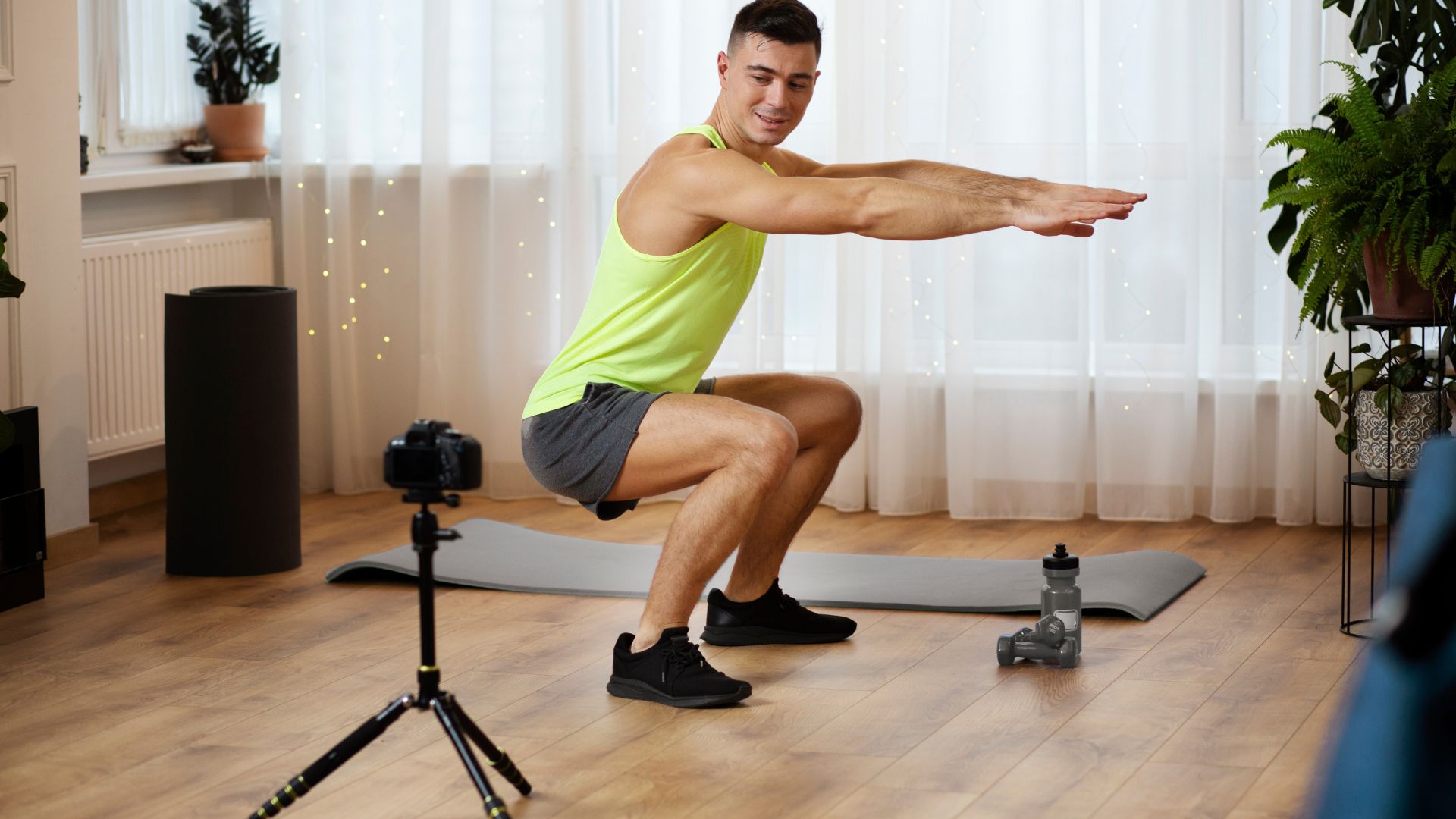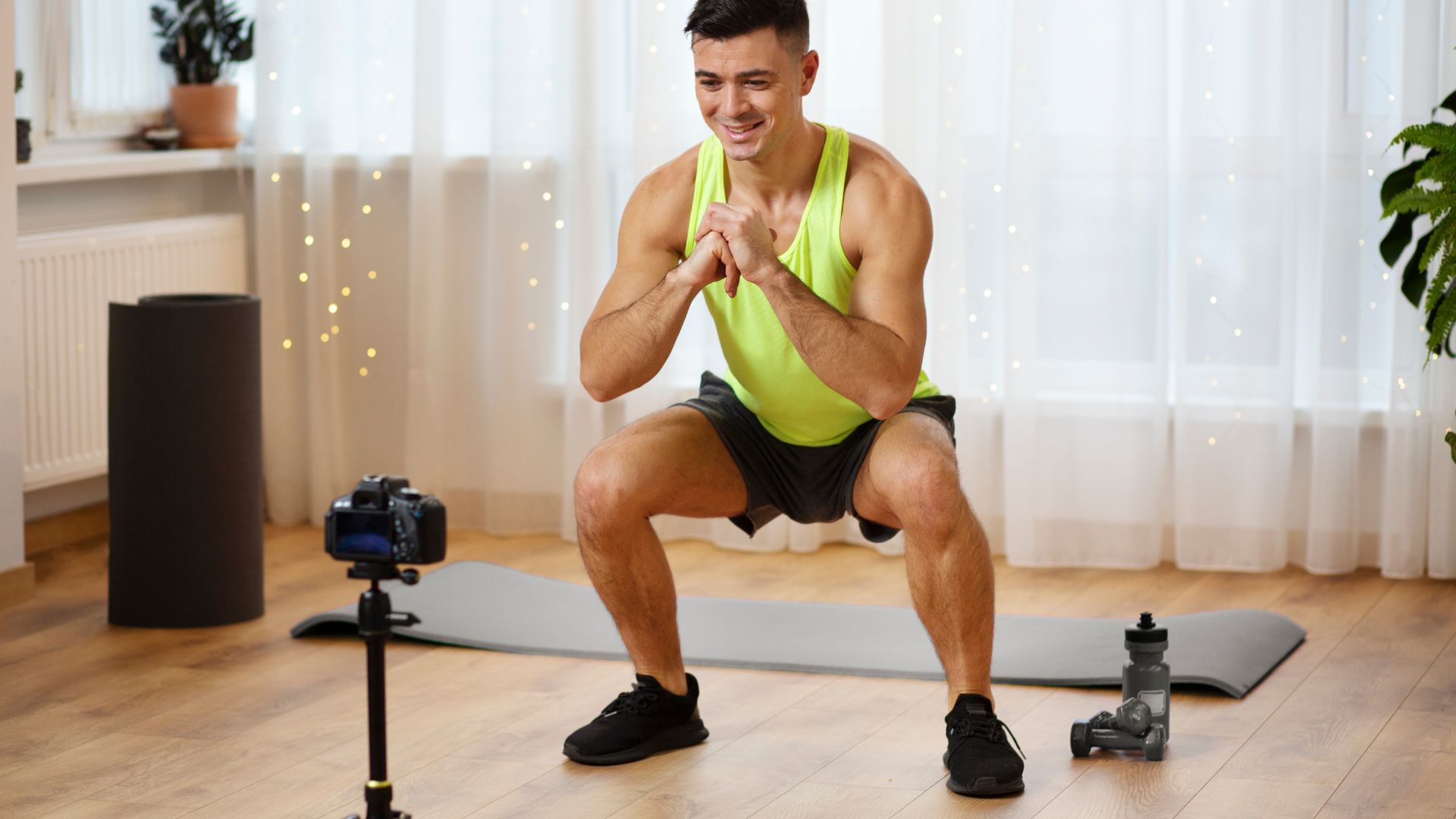In the pursuit of self-improvement and personal growth, individuals often seek ways to enhance their confidence.
Surprisingly, one effective method for boosting confidence lies in a simple yet powerful exercise: squats. Beyond their physical benefits, squats have been found to have a profound impact on an individual’s psychological well-being.
This article delves into the reasons behind the remarkable connection between squats and confidence, shedding light on the empowering effects of this popular exercise.
Squats can boost confidence due to several reasons. Firstly, they strengthen and tone the lower body, improving overall physique. This can enhance body image and self-esteem. Secondly, squats require mental focus, determination, and physical effort, leading to a sense of accomplishment and empowerment. Lastly, the release of endorphins during exercise contributes to a positive mood and increased confidence. These combined factors contribute to the confidence-boosting effect of squats.
Squats strengthen and tone the lower body.
Squats can boost confidence for various reasons. Firstly, they strengthen and tone the lower body by engaging muscles such as the quadriceps, hamstrings, and glutes.
As a result, the overall physique improves, leading to a more aesthetically pleasing appearance. This physical transformation can enhance body image and increase self-esteem.
The process of squatting itself contributes to the confidence-boosting effect. Squats require mental focus, determination, and physical effort.
By pushing through the challenging movements and completing each repetition, individuals gain a sense of accomplishment and empowerment.
This can instill a belief in their capabilities and improve self-confidence.
What is recommdeded.
When it comes to recommended practices, it is essential to consider a few factors. First and foremost, proper form and technique should be prioritized to prevent injuries and maximize results.
It is advisable to start with lighter weights or bodyweight squats and gradually increase the intensity as strength and comfort levels improve.
Consistency is key in reaping the confidence-boosting benefits of squats. Incorporating squats into a regular exercise routine, such as performing them two to three times a week, can yield positive results over time. It’s important to listen to your body and give it adequate rest and recovery.
Example.
An example of how squats can boost confidence is a scenario where an individual starts a fitness journey with low self-esteem and body image concerns.
As they consistently include squats in their workout routine, they begin to notice improvements in their leg and glute strength, muscle definition, and overall physique.
This positive physical transformation, coupled with the sense of accomplishment from progressing to heavier weights, contributes to an increased sense of confidence and self-assurance in their appearance and abilities.
Squats lead to a sense of empowerment.
Squats require mental focus, determination, and physical effort, which contribute to a sense of accomplishment and empowerment.
The mental aspect of squats is crucial as it demands concentration and focus to maintain proper form and execute the movement correctly.
This mental engagement helps individuals develop a connection between their mind and body, fostering a greater awareness of their physical capabilities.
The ability to channel focus and concentrate during squats can also translate to other areas of life, promoting a sense of discipline and resilience.
Determination plays a significant role in squats. The exercise can be physically challenging, especially when increasing weight or performing advanced variations.
Overcoming these challenges requires determination and the willingness to push through discomfort and fatigue.
By persevering and completing each squat, individuals develop a sense of achievement and confidence in their ability to overcome obstacles.
The physical effort involved in squats contributes to the sense of accomplishment. Squats engage multiple muscles in the lower body, such as the quadriceps, hamstrings, glutes, and core.
The exertion and effort put into each repetition result in muscle activation, strengthening, and growth. Seeing progress in strength and performance can provide a tangible measure of achievement and boost self-esteem.

What is recommended?
When it comes to recommended practices, it is crucial to consider a few factors. Start with proper form and technique to ensure safety and maximize results.
Gradually increase the intensity by adding weights or trying variations like goblet squats or barbell squats. Incorporate squats into a well-rounded exercise routine that includes other compound movements and exercises targeting different muscle groups.
It is advisable to consult a fitness professional or trainer for guidance on form, progression, and individualized recommendations.
The timing of squat workouts depends on individual preferences and goals. Some may prefer including squats in their leg day routine, while others may integrate them into full-body workouts.
Consistency is key, aiming for two to three squat sessions per week while allowing sufficient rest and recovery days.
An example.
Illustrating the impact of squats on confidence is a person starting from a point of feeling physically weak and lacking self-assurance.
Through consistent practice, they gradually increase their squatting weight and notice improvements in strength, muscle tone, and overall physical fitness.
This progress reinforces their belief in their abilities, leading to a sense of accomplishment and empowerment. The mental focus and determination developed during squat workouts also translate into other areas of life, promoting a more confident and resilient mindset.
The release of endorphins during squats workout.
The release of endorphins during exercise, including squats, contributes to a positive mood and increased confidence.
Endorphins are neurotransmitters produced by the brain and spinal cord that help alleviate pain and induce feelings of pleasure and well-being.
When engaging in physical activity like squats, the body releases endorphins as a natural response to stress and exertion.
These endorphins interact with receptors in the brain, leading to a heightened sense of happiness, reduced stress, and improved mood.
There are several reasons why endorphins released during squats can contribute to increased confidence. Firstly, the positive mood induced by endorphins creates a more optimistic and upbeat mindset, fostering a sense of self-assurance.
This uplifted mood can help individuals overcome self-doubt and approach challenges with a greater belief in their abilities.
The release of endorphins during squats also acts as a natural stress reliever. Exercise, including squats, helps reduce the levels of stress hormones such as cortisol in the body.
Lowering stress levels can improve overall well-being and mental clarity, allowing individuals to feel more confident in their decision-making and problem-solving abilities.
The timing of endorphin release during squats can vary from person to person, but it typically occurs during and after the exercise.
The duration and intensity of the squatting session can influence the magnitude of endorphin release. Consistency in incorporating squats into a regular exercise routine is important to experience the cumulative effect of endorphin release and its positive impact on confidence.
What should you consider?
When considering recommended practices, it is essential to prioritize safety and individual fitness levels. Gradually increase the intensity and duration of squat workouts to allow the body to adapt and minimize the risk of injury.
Listen to your body and give it adequate rest and recovery between sessions to maximize the benefits of endorphin release.
Example:
An example illustrating the effect of endorphins on confidence during squats is a person who starts their workout feeling mentally fatigued or stressed.
As they engage in a squatting session, they experience the release of endorphins, which contributes to an immediate mood boost and reduction in stress levels.
This shift in mood creates a more positive and confident mindset, allowing them to approach the workout with renewed vigor and belief in their abilities.
The experience of increased confidence during the squatting session reinforces the positive association between exercise, endorphins, and self-assurance.
Why do these combined factors contribute to confidence?
The combined factors of strengthening and toning the lower body, the mental focus and determination required during squats, and the release of endorphins all play crucial roles in the confidence-boosting effect of squats.
Strengthening and toning the lower body through squats can improve overall physique and body image. When individuals notice visible improvements in muscle definition and shape, it enhances their self-perception and boosts self-esteem.
Feeling physically stronger and more capable contributes to a sense of confidence in one’s appearance and abilities.
The mental focus and determination required during squats are essential for developing confidence.
By concentrating on maintaining proper form and pushing through the physical challenge, individuals demonstrate their commitment and discipline.
This mental engagement and overcoming of obstacles during squats build a belief in one’s capabilities and foster self-assurance.
The release of endorphins during squats adds another crucial element to the confidence-boosting effect. Endorphins contribute to a positive mood, reducing stress and promoting a sense of well-being.
This elevated mood helps individuals feel more optimistic and self-assured, reinforcing their confidence in their physical abilities and overall sense of self.
By combining these factors, squats provide a comprehensive confidence-boosting experience. Strengthening and toning the lower body enhance body image, while the mental focus and determination foster self-belief and a sense of accomplishment.
The release of endorphins amplifies the positive mood and further reinforces confidence. This holistic approach contributes to an overall improvement in self-confidence and self-assurance through regular practice of squats.
Here’s a tabular explanation summarizing the key points:
| Aspect | Reasons Why | How | When | Recommended Things | Considerations | Example |
|---|---|---|---|---|---|---|
| Strengthening & Toning | Enhances physique and body image | Engages lower body muscles | During regular exercise sessions | Gradually increase intensity and weights | Prioritize proper form and technique to prevent injuries | Improved muscle definition and shape leading to enhanced self-perception and increased self-esteem. |
| Mental Focus & Determination | Develops a sense of accomplishment and empowerment | Requires concentration and proper form | During each squat repetition | Maintain consistency in practice | Overcome challenges with determination and push through discomfort and fatigue | Overcoming obstacles during squats builds belief in one’s capabilities and fosters self-assurance. |
| Release of Endorphins | Enhances positive mood, reduces stress | Natural response to exercise | During and after squat workouts | Engage in regular exercise routine | Gradually increase intensity, allow for rest and recovery | Endorphins contribute to an uplifted mood, fostering a sense of confidence and well-being. |
Please note that this table provides a concise summary. Each aspect can be further elaborated upon with additional information and examples.
Conclusion.
In conclusion, squats have a significant impact on confidence due to a combination of factors. Firstly, they strengthen and tone the lower body, improving physique and body image, which enhances self-esteem.
Secondly, the mental focus and determination required during squats instill a sense of accomplishment and empower individuals to overcome challenges.
Lastly, the release of endorphins during exercise creates a positive mood and reduces stress, further boosting confidence. By incorporating squats into a regular routine, individuals can experience a holistic confidence-boosting effect that positively impacts their physical and mental well-being.

Hey there, it’s Mike Rrsq, the Editor-in-Chief over at Jsquat.com, and I’m absolutely obsessed with all things squat fitness! I’ve been lucky enough to get some serious recognition for my work in this field. With a solid background in the fitness and wellness industry, I’ve been there right from the get-go, helping shape this website into what it is today.
You see, I’m not just the boss around here; I’m also a passionate contributor. I love sharing my insights through my articles, and trust me, they’re not your run-of-the-mill stuff. Each piece I write is a labor of love, filled with my expertise and real-world experience in the fitness universe. So, if you’re into fitness and looking for some inspiration, you’re in the right place!

